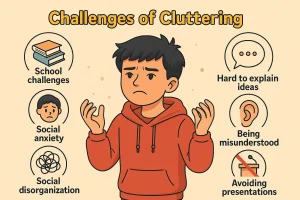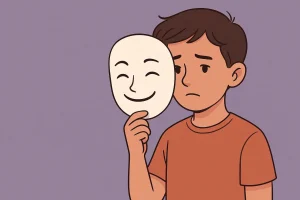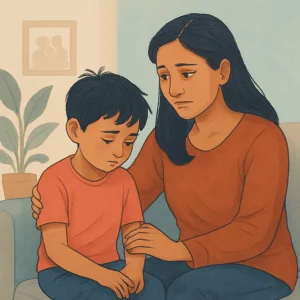How to Use WH Questions in Speech Therapy – Tips for Parents
By Rajini D
Last Updated: February 6, 2025
WH questions—Who, What, Where, When, Why, and How—are essential tools in developing your child’s language skills. These questions not only help build communication but also encourage curiosity and detailed responses. This article offers practical WH Questions Speech Therapy Tips to seamlessly incorporate WH questions into your daily interactions with your child, enhancing their ability to express themselves while keeping learning engaging and fun. Let’s explore simple strategies to make every conversation a stepping stone in your child’s speech development.
The Importance of WH Questions in Speech Therapy
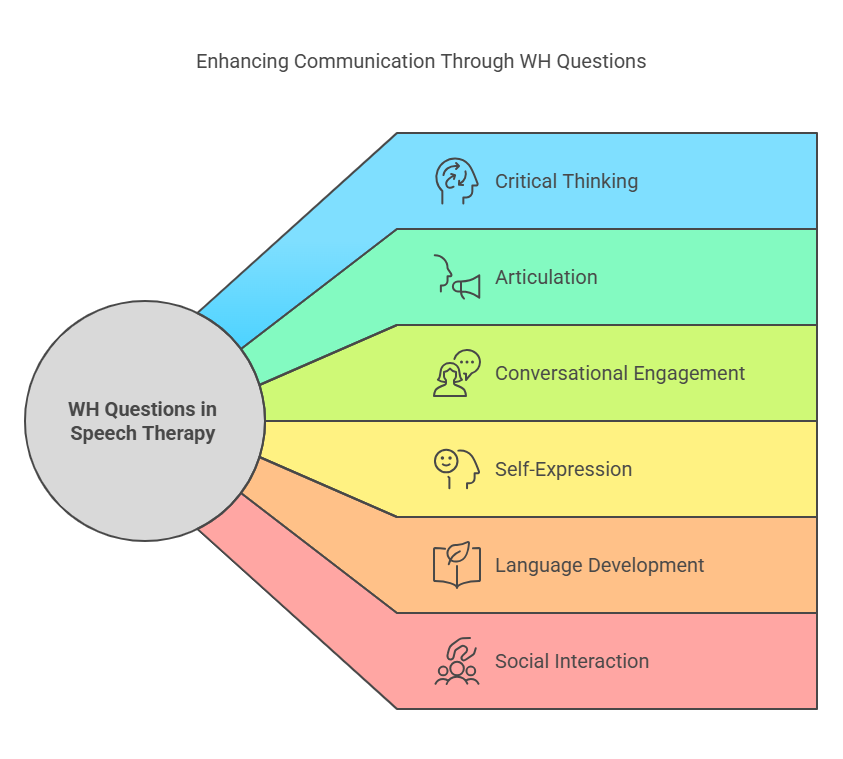
Enhancing Communication Skills
- Building Vocabulary and Expression
WH questions such as “What color is the ball?” help children not only recognize objects but also describe their attributes. This enhances vocabulary and aids in developing their ability to express detailed information. - Encouraging Complex Thinking
Asking questions like “Why do you think the cat is hiding?” prompts children to think critically and hypothesize, which boosts their problem-solving skills and cognitive development. - Stimulating Curiosity
Regularly incorporating WH questions into conversations motivates children to explore their environment and ask questions themselves, fostering a natural love for learning. - Supporting Academic and Social Skills
WH questions are vital in building the analytical skills needed for academic success and the social skills required for interacting with others. At Wellness Hub, we recommend making these questions a routine part of playful and serious discussions to enhance children’s linguistic and social abilities.
Also read: WH Questions for Kids: A Simple Guide to Teaching and Learning
Practical Tips for Teaching WH Questions
Teaching WH questions doesn’t have to be a formal process. With the right approach, you can naturally incorporate these vital questions into your child’s daily routine, making the learning both fun and effective. Here’s how to get started:
1. Start with Basics
Introducing WH questions to children begins with the simplest forms. Start by integrating basic questions into everyday conversations. For example, while looking at a book with your child, point to an animal and ask, “What is this?” or during a walk, point to a building and ask, “What color is that house?” These simple questions help children start to think about their environment and how to describe it using their own words.
2. Incorporate Questions into Daily Activities
Routine activities are excellent opportunities to practice WH questions. During mealtime, ask, “What are you eating?” or “Who made this soup?” You can extend this to playtime by asking questions like, “Where did you put your toy car?” or “When do you want to play outside?” These questions make the practice frequent and functional, helping children understand and respond naturally over time.
3. Use Visual Aids and Resources
Visual aids such as flashcards, storybooks, and educational videos can significantly enhance the learning experience. These tools provide a visual context that helps children grasp the meaning of questions and answers more effectively. For instance, using a flashcard showing a park scene, you could ask, “Who is on the swing?” or “What is the dog doing?” This method helps solidify their comprehension and recall of words and concepts.
4. Make Learning Fun with Games
Games that incorporate WH questions turn learning into an interactive and enjoyable experience. Simple games like “I Spy” can be adapted to include WH questions, e.g., “What do you spy with your little eye, and where is it?” Other games like treasure hunts can use clues framed as WH questions, making the game an adventurous learning session that children look forward to.
5. Encourage Storytelling
Storytelling is a powerful method to practice WH questions. As you read a story, pause and ask questions about the plot and characters, like “Why did the character go there?” or “How did they feel?” Encourage your child to make up their own stories too, and guide them with WH questions to develop a more detailed narrative. This not only improves their language skills but also enhances their creativity and understanding of story structures.
Supportive Strategies for Parents
Creating a supportive learning environment and effectively monitoring your child’s progress are crucial steps in enhancing their speech development through WH questions. Here are practical tips structured in a table format to help parents foster a nurturing atmosphere and adapt strategies based on their child’s needs.
a. Creating a Nurturing Learning Environment
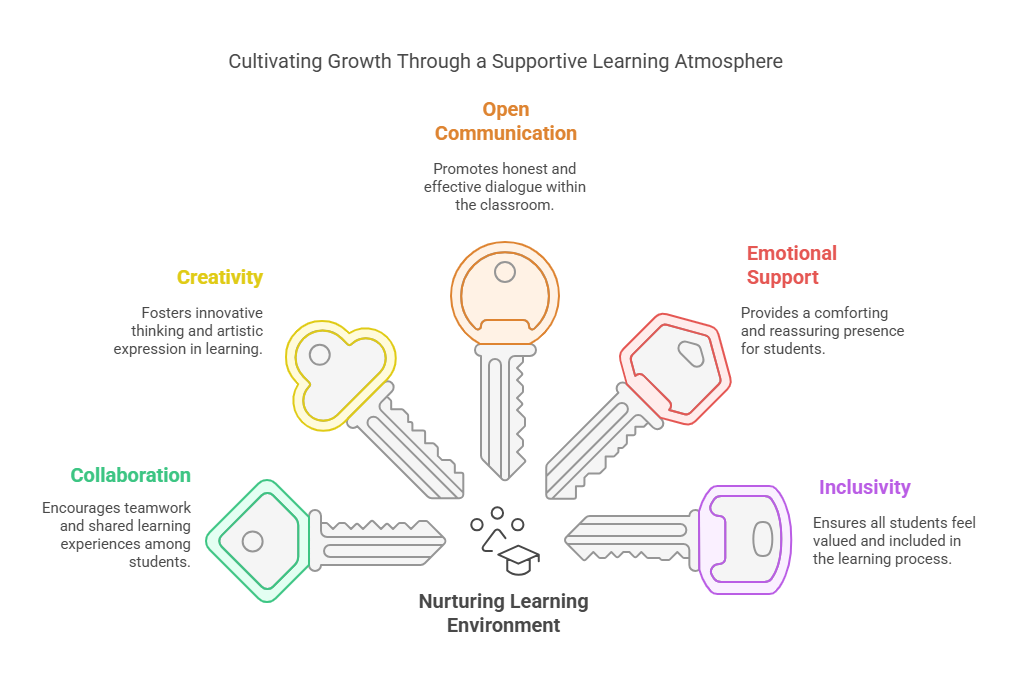
b. Monitoring Progress and Adapting Strategies

Overcoming Common Challenges
Addressing Difficulties with WH Questions
Teaching WH questions can sometimes be as challenging for the parent as it is for the child, especially when children face difficulties in understanding or using these questions appropriately. Recognizing these challenges early and knowing how to address them can make a significant difference in your child’s language development journey. Here are some common issues and practical solutions to help you navigate these hurdles.
1. Difficulty Understanding the Purpose of Each Question
- Solution: Simplify explanations and provide clear examples. Use concrete examples that are relevant to the child’s daily life. For instance, explain “where” by talking about locations in your home, “who” by discussing family members or friends, and “why” by relating it to their routine actions, like why we brush our teeth.
2. Mixing Up Question Types
- Solution: Focus on one type of WH question at a time until the child shows comfort and understanding before introducing another. Visual aids can be particularly helpful here, like flashcards or charts that depict each question type with symbols or pictures.
3. Lack of Interest in Responding to Questions
- Solution: Turn question-asking into a game. For example, use a timer to see how many questions they can answer in a minute, or hide objects around the room and use WH questions to find them. Keeping the activities light and fun can encourage engagement.
4. Difficulty Forming Complete Answers
- Solution: Model complete answers and encourage imitation. Start with answers that are one or two words long and gradually increase complexity as your child becomes more comfortable. Role-playing and storytelling are excellent strategies for practicing longer responses.
5. Frustration or Resistance to Learning
- Solution: Take breaks and reduce pressure. Make sure learning sessions are short and sweet to keep your child’s attention from waning. Celebrate small victories to boost their confidence and willingness to participate.
Resources from Wellness Hub
- Wellness Hub offers a variety of resources and tools designed to assist parents in teaching WH questions effectively. From interactive games and flashcards to detailed guides on handling specific challenges, these resources are tailored to make speech therapy engaging and productive.
Conclusion
WH questions are powerful tools in speech therapy, boosting your child’s communication and thinking skills. By integrating these questions into daily life, you help your child understand and interact more effectively with the world. Consistency is key, so keep practicing and watch your child’s language grow. For more support and resources, visit Wellness Hub. We offer easy-to-use tools and expert guidance to enhance your home therapy experience. Keep exploring and using our resources to help your child thrive in communication and beyond. Let’s make learning a fun part of your everyday moments together!
Frequently Asked Questions:
1. What are WH questions in speech therapy?
WH questions include “Who,” “What,” “Where,” “When,” “Why,” and “How.” They are used in speech therapy to help children develop their language and thinking skills by encouraging them to provide more detailed responses.
2. Why are WH questions important for children’s language development?
WH questions help children learn how to form responses that involve reasoning, explanation, and description, which are essential for cognitive development and effective communication.
3. How can I start teaching WH questions to my child?
Begin with simple questions like “What is this?” or “Where is your toy?” and gradually introduce more complex questions as your child becomes comfortable answering.
4. Can WH questions improve my child’s academic skills?
Yes, practicing WH questions can enhance a child’s academic skills by improving their ability to understand and process information, which is crucial for learning in school settings.
5. What are some simple games to teach WH questions?
Games like “I Spy” or creating treasure hunts with clues framed as WH questions are fun ways to practice. These games make learning engaging and interactive.
6. How often should I practice WH questions with my child?
Daily practice is ideal. Incorporate WH questions into routine activities such as mealtime, playtime, or while reading a story to make the most of everyday learning opportunities.
7. What should I do if my child struggles with WH questions?
If your child finds WH questions challenging, scale back to simpler questions and slowly build complexity. Also, ensure you are giving clear examples and plenty of praise to encourage their efforts.
8. Are there any specific tools from Wellness Hub that can help with teaching WH questions?
Wellness Hub offers a variety of resources like flashcards, interactive games, and educational videos that are specifically designed to help parents teach WH questions effectively.
9. Can using WH questions help with a child’s social skills?
Absolutely. WH questions require children to think about how they relate to others and to situations, which enhances their social interaction and empathy skills.
10. Where can I find more resources on using WH questions for home speech therapy?
Visit Wellness Hub’s website to explore a wide range of tools and guides that can support you in using WH questions to enhance your child’s speech and language development at home.
About the Author:
Rajini Darugupally
M.Sc., Speech-Language Pathologist (9+ years of experience)
Rajini is a passionate and dedicated Speech-Language Pathologist with over 9+ years of experience, specializing in both developmental speech and language disorders in children and rehabilitation in adults. Driven by a desire to empower each individual to find their voice, Rajini brings a wealth of experience and a warm, genuine approach to therapy. Currently, at Wellness Hub, she thrives in a team environment that values innovation, compassion, and achieving results for their clients.
Book your Free Consultation Today
Parent/Caregiver Info:
Client’s Details:
* Error Message




